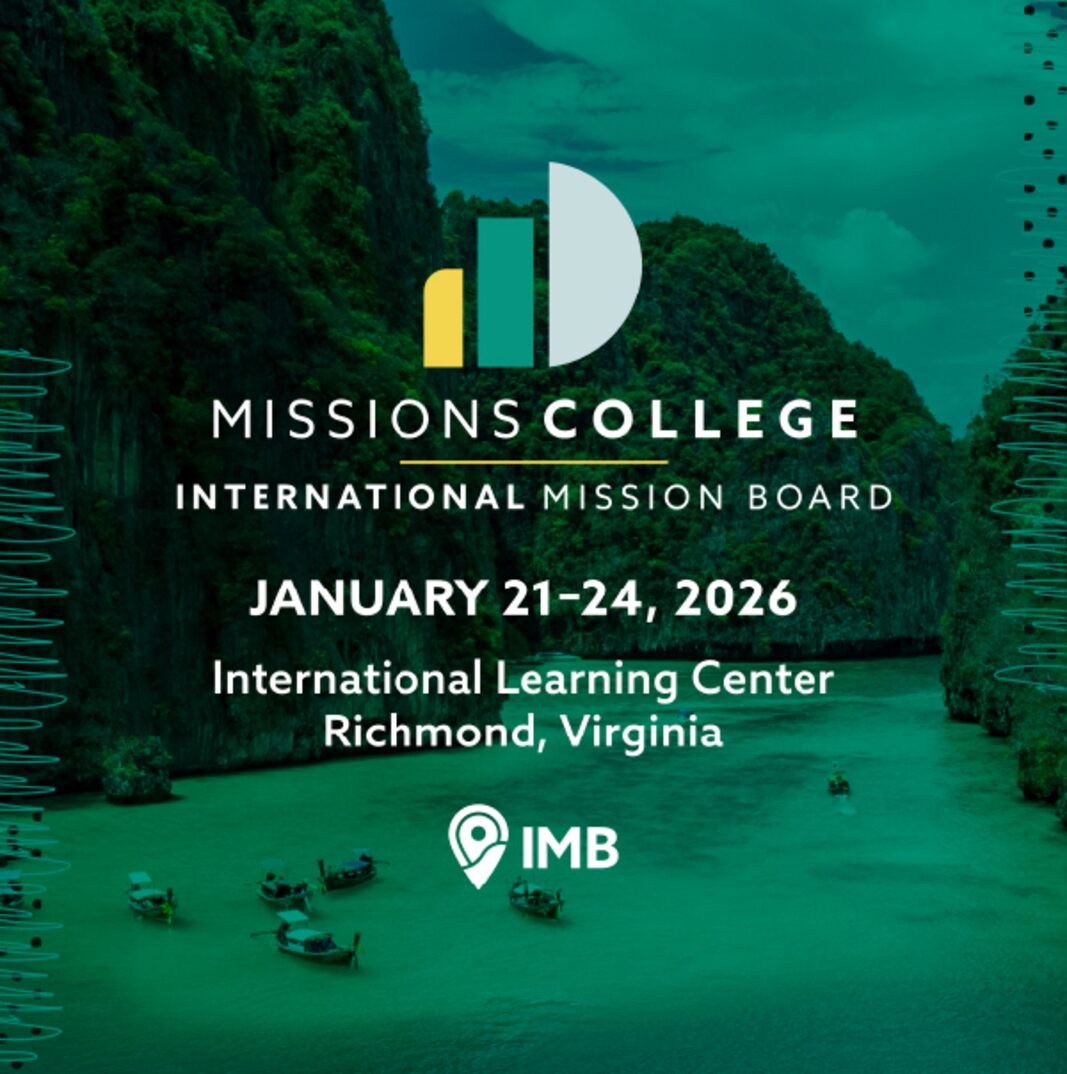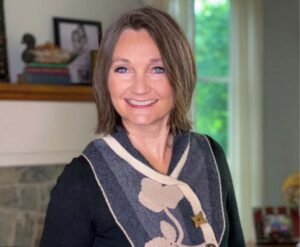
KANSAS CITY, Mo. (BP)–Midwestern Baptist College started delivering biblical and ministry studies directly into students’ homes via the Internet in July after a regional accreditation agency approved a new degree program.
The undergraduate school of Midwestern Baptist Theological Seminary will offer a 45-hour master of arts in theological studies degree program aimed at providing a convenient, affordable method for ministry training.
“The MATS degree is designed to meet our students’ need for flexible and focused ministry training. The program has been focused by building upon foundational courses in biblical and theological studies,” Ted Davis, the MATS program director, said.
“It also offers courses in important aspects of practical ministry: church administration, evangelism, interpretation and missions. This degree will work very well for you if you are just starting out in ministry and want to gain much-needed basic skills while you serve, or if you have been in ministry for many years but just haven’t had the opportunity to complete a master’s degree,” Davis said.
Having served as an International Mission Board worker for 23 years, Davis said a benefit of MATS is that people can complete degrees without having to uproot their families or leave their church ministry or lay career positions.
Courses for the MATS degree entail eight-week terms, so students could complete the program in just over two years by taking one class per term. And since class work primarily is composed of core courses for a traditional master of divinity degree, all accrued hours are fully transferrable into other degree programs at Midwestern Seminary.
“Flexibility is one of the most attractive aspects of the MATS degree. With no prerequisite courses in the program, scheduling is easy,” Rodney Harrison, dean of the MBTS online program, said. “The brief length of the term allows you to complete a course of study and then move on to something else, or even take a break from your studies. You ‘attend’ class online, so it fits your daily schedule.
“You can ‘attend’ at 9 a.m. or midnight, whichever works best for you. Each class in the program will be offered in a regular cycle, so any course you will need is only a term or two away. Midwestern will offer six terms each year,” Harrison said.
The program is not limited only to those called into ministry service, R. Philip Roberts, Midwestern’s president, said.
“Our goal is to reach out to ministers such as directors of missions, pastors, children’s ministers and missionaries, but it doesn’t stop there,” Roberts said.
“Since the courses are foundational to all types of ministry, it will provide a great start in professional training for deacons, Bible study teachers, missions and AWANA leaders and many other lay workers too,” he said. “We pray that anyone desiring more theological education will find this degree a great way to deepen their knowledge of the Word and find greater fulfillment in their ministries.”
Registration for the first course, Introduction to Apologetics, started July 1. Fall terms are scheduled from Aug. 23 to Oct. 8 and Oct. 18 to Dec. 10.
Harrison said Midwestern’s online offering provides an affordable education without some of the fees required by other programs.
“The MATS degree individual course cost is $750 per class, plus book fees,” Harrison said. “Unlike many other online programs, there aren’t a number of hidden fees that keep the class prices on the rise. What you see is what you get.”
School officials said one area they strived to keep simple was the application process.
“It is easy to enroll and register for your first courses,” Davis said. “Simply click on the MATS Fast Start Application link at https://www.mbts.edu/academics/distance_learning/online_courses/ and complete the preliminary information requested in the form, then you can register for your courses. Payments can be made immediately to complete the process, or students can hit the submit button on the application and the MBTS business office will work with you about remittance.
“Using the Internet will enable Midwestern to reach out to people around the world who, until this point, have been unable to take theological education courses,” Davis said. “We look forward to the Holy Spirit’s moving through this program that will ultimately lead to a more educated Christian populace who can reach the world for Jesus Christ.”
APOLOGETICS COURSE ADDRESSES ISLAM — An expert in Muslim apologetics spoke at Midwestern Seminary on ways to more effectively approach Muslims about their beliefs during a course offered on campus in June.
Jay Smith, an evangelical researcher whose Pfander Films ministry has been based in London for 18 years, has taught groups about Muslim apologetics in a number of countries, including Brazil, South Africa, Russia, Korea, Italy and the United Kingdom.
Seeking ways to evangelize Islamic people has come to the forefront in recent years since the number of Muslims worldwide is increasing dramatically. Smith noted that in the 1970s and 1980s missionaries would rather avoid ministering in Islamic countries in favor of planting churches in Latin and South America.
“When I started working in the Muslim world in 1983, only 2 percent of all missionaries went to the Muslim world, which came to about 1,500 missionaries to try to evangelize 800 million Muslims,” Smith said. “Because of large catastrophes like 9/11, it brought it into the consciousness that Islam is not just a small religion.”
Smith expects Islam to surpass Christianity as the world’s largest religion by 2020 if nothing is done to stir Muslims toward the Gospel. Since 9/11, he said, “I have found here in the United States there have been huge changes in acceptance and the need to confront Islam. A lot of it is because people in the U.S. hardly knew Muslims existed. They knew they were overseas. They knew they were a problem, but they didn’t know they were such an immediate threat and that they were so violent until 9/11.”
Smith, whose parents were missionaries, said confronting Islam differs from addressing other religions in two ways. First, Muslims are confident. They possess certainty in their god and in the Quran. Secondly, Islam reacts when it is confronted. Muslims will react with words and weapons. As for Christianity, Smith holds optimism that there is a history of God’s people standing up for their faith when confronted by threats.
To illustrate the point, Smith spoke about Bill Koehn and Martha Myers, two missionaries and former students of Midwestern, who were martyred in the Middle East in 2002.
“I find that when Christians are up against that kind of hostile environment, they don’t run from it. They get more engaged in it,” Smith said. “Before Bill Koehn and Martha Myers were killed, there were very few [workers] in that area. In February this year, I was responsible for training up workers in the Middle East and Northern Africa. By far the largest of the groups were from the area where Koehn and Myers were killed.”
Smith’s apologetics class was taught in Midwestern’s Koehn & Myers Center for World Evangelism, which was named for their sacrifices.
A new component of the course this year was a practical element in which students applied what they learned in class by visiting a local mosque to dialogue with Muslims concerning issues of faith.
One student who attended the class and visited the local mosque was Ron Coulson, who is working toward a master’s degree at Midwestern.
“There was a great openness and they were very genuine about wanting to talk to us with no hostility at all,” Coulson said.
Other students appreciated the value of studying in class and then immediately applying what was learned in the field. Students who visited the mosque said the Muslims they approached seemed well-versed in their knowledge of theology and added how important it is for Christians to be familiar with the Word when they attempt to have a dialogue with Muslims.
The goal of the course was to give students an overview of major questions in the field of Muslim apologetics and evangelism. Topics included Islam in the West, Islam’s practices and beliefs, Quranic & biblical critique, Muhammad and Jesus, and apologetics and polemics.
For Coulson, the class “opened my heart to want to engage Muslims, befriend them and spend more time studying to help them understand the Gospel to the point of belief.”
–30–
Based on reports by D.J. Castilleja and the Midwestern Baptist Theological Seminary staff.













